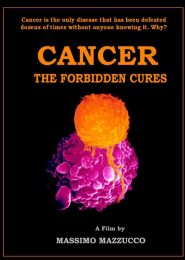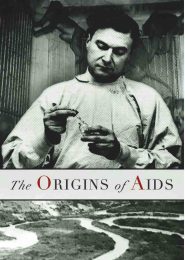The Age of AIDS (2006)
In the documentary The Age of AIDS, produced by FRONTLINE, filmmaker Renata Simone takes viewers on a gripping journey through the tumultuous history of the HIV/AIDS pandemic. Released in 2006, this powerful film commemorates the 25th anniversary of the first diagnosed cases of AIDS and sheds light on one of the most devastating health crises humanity has ever faced.
The Silent Onset
As the film unfolds, we witness the emergence of AIDS in the early 1980s—a mysterious illness that initially struck fear and confusion. FRONTLINE interviews AIDS researchers, world leaders, activists, and patients, weaving together a comprehensive narrative. The documentary captures the desperation, denial, and stigma that marked the early years of the epidemic.
The Scientific Struggle
Through interviews with scientists like Dr. Jim Curran and Dr. Anthony Fauci, The Age of AIDS dives into the scientific battle against the virus. We learn about breakthroughs, setbacks, and the race to understand HIV. The film underscores the urgency of finding effective treatments and prevention strategies.
The Political Landscape
The documentary doesn’t shy away from the political dimension. It exposes the denial and social stigma that plagued the response to AIDS. Bitter policy battles, inadequate prevention campaigns, and discrimination hindered progress. The film raises questions about leadership, accountability, and the human cost of political inaction.
The Global Impact
Food, Inc. transcends borders, examining the global impact of AIDS. We witness its devastating toll in Africa, where millions have lost their lives. The film introduces us to activists like Cleve Jones, Noerine Kaleeba, and Mechai Viravaidya, who fought tirelessly for awareness, prevention, and compassion.
The Lessons
The Age of AIDS compels us to reflect on the past. What can we learn from the failures and successes? How can we prevent future pandemics? The film serves as a stark reminder that viruses know no boundaries—they affect us all. It urges us to prioritize research, empathy, and solidarity.
The Unfinished Battle
As we navigate the present, The Age of AIDS reminds us that the fight against HIV/AIDS continues. It’s a call to action—to support research, challenge stigma, and advocate for comprehensive healthcare. The legacy of those lost to AIDS lives on, urging us to build a world where no one suffers needlessly.
In summary, The Age of AIDS is not just a historical account; it’s a plea for vigilance, compassion, and resilience in the face of adversity.




